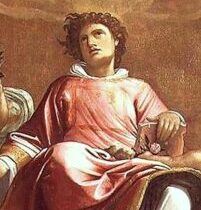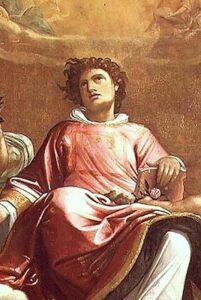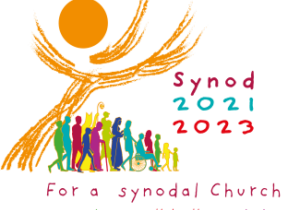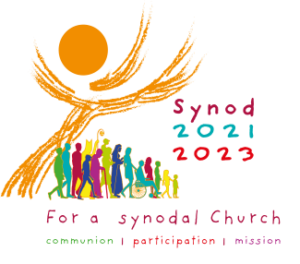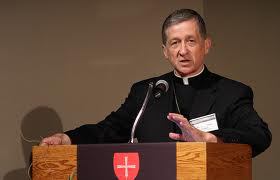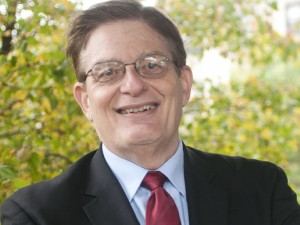No Unnecessary Burdens
 Those who have children may well have discovered that when a child wants to play on an organized sports team, there’s far more to the deal than simply showing up for games. Beyond the cost of the program itself, there’s the need for a uniform, special shoes, special equipment that’s the right size for the child, transportation, and regular required practice times (regardless of other previously scheduled aspects of family life). All that must be handled before a single game is played.
Those who have children may well have discovered that when a child wants to play on an organized sports team, there’s far more to the deal than simply showing up for games. Beyond the cost of the program itself, there’s the need for a uniform, special shoes, special equipment that’s the right size for the child, transportation, and regular required practice times (regardless of other previously scheduled aspects of family life). All that must be handled before a single game is played.
Yet despite the inconvenience of it all, parents continue to sign their children up to play sports, take dance classes, join Scouts, and be part of other activities that encourage the children to learn new skills, test their limits, and learn to work, play with, and lead others.
In the early years of the Christian community, as those who were part of the original group of disciples went out to share the good news with people outside Jerusalem, they also found some unexpected complications, especially as they moved out into non-Jewish lands.
Paul and Barnabas, as they began teaching in Asia Minor, found the message of the coming of the kingdom to be much more easily accepted by the Gentiles with whom they spoke than by the Jewish communities there. When others came out from Judea and met the Gentile Christians, some began to insist that Gentiles needed to become Jewish in order to be followers of Jesus. That would involve circumcision and obedience to Jewish Law and traditions. The idea caused a great deal of consternation among the Gentile converts, as well as Paul and Barnabas. “There arose no little dissension and debate…” about the issue, so Paul, Barnabas, and some others went to Jerusalem to consult with the apostles and other leaders there.
In what was the first council of the Church, the Council of Jerusalem, the apostles and elders met to discuss the question. Should new members of the community be required to live by Jewish law (the Torah) or not? The decision was made that obedience to traditional Jewish laws, including circumcision of males, was not necessary for new Christians. Only four conditions were set as requirements. Christians were not to eat the meat of animals sacrificed to idols. Christians were not to eat blood. They were not to eat the meat of animals that had been strangled. And they must not engage in “unlawful marriage” (a.k.a. intimate relations outside of marriage).
In a letter sent to the Christian communities of Antioch, Syria, and Cilicia, the apostles and elders wrote, “It is the decision of the Holy Spirit and of us not to place on you any burden beyond these necessities…” Keeping free of those four prohibited activities was all that was needed for “doing what is right.” The highly complex system of laws that governed every aspect of faithful Jewish life was not required anymore, based on the guidance of the Holy Spirit. (Acts 15:1-2, 22-29)
Jesus himself told his disciples before he died that there was far more they would need to know as they moved forward as his followers. He promised that those who loved him and kept his word would be loved in return by the Father. “We will come to him and make our dwelling with him.” Then he gave them a word of encouragement, “The Advocate, the Holy Spirit, whom the Father will send in my name, will teach you everything and remind you of all that I told you.”
Jesus knew that most of what he was telling his friends was beyond their ability even to imagine. Who would ever have imagined that he would rise from the dead? Who could comprehend what he was saying about being one with the Father? But here he was, telling them not to worry. “Peace I leave with you; my peace I give to you.”
So much more than they expected or could understand until the whole thing played out was now suddenly upon them as he spoke that night before his passion began. “I have told you this before it happens, so that when it happens you may believe.” (Jn 14:23-29)
At the Council of Jerusalem, the Holy Spirit did indeed teach the community something new. No unnecessary burdens need to be laid on those who come to follow the Lord.
In the Book of Revelation, we see something similar. The holy city of Jerusalem, coming down from heaven shone with God’s splendor, like a precious stone. It had high walls (for protection) and twelve gates. Twelve always stands for the tribes of Israel. The fact that Jesus had twelve apostles was related to this as well. They were seen as the stones on which the walls of the new city rested, “the twelve apostles of the Lamb.”
Jerusalem historically was the city in which God dwelt in the temple. Yet in Revelation, there is no temple in the city coming down from heaven. We are told, “its temple is the Lord God almighty and the Lamb.” The glory of God provided light “and its light was the Lamb.” (Rev 21:10-14, 22-23)
Again, no burdens of having to offer animal sacrifices in the temple in the new Jerusalem, the new community of the Lord.
As we live our lives in Christian communities today, we are also called not to put unnecessary burdens on others. People from many backgrounds, many traditions, many lands, many languages all come together as believers. We bring the riches of faith to share with each other. As we join together to serve the Lord in the community around us and throughout the world, we too need to remember that others don’t have to live exactly as we do in order to be loved by God. In those who can’t work or those who don’t have money for food for themselves and their children even though they are working, or those who arrive with nothing but hope as they flee for their lives from their native countries, in all of these, we meet the Lord. He is there, lifting the burdens of his sisters and brothers through our hands and willing hearts.
We don’t serve the Lord by imposing our religious beliefs or traditions on others. We serve by meeting others where they are and sharing the love of God by listening, sharing what we have, and enjoying the precious time we have to spend here and now.
We are a community that stretches around the world today. We are not first and foremost members of a powerful nation that imposes its will on others. We share something much deeper and more powerful – the love of the Lord, the gifts of the Holy Spirit and the fruits of their flowering in our lives of service, with our sisters and brothers in every land.
May we this week be aware of the burdens we might be imposing on others and try to lighten our expectations of them, so that the love of God will shine through us and out into our world.
Readings for the Sixth Sunday of Easter, Cycle C
Read More





